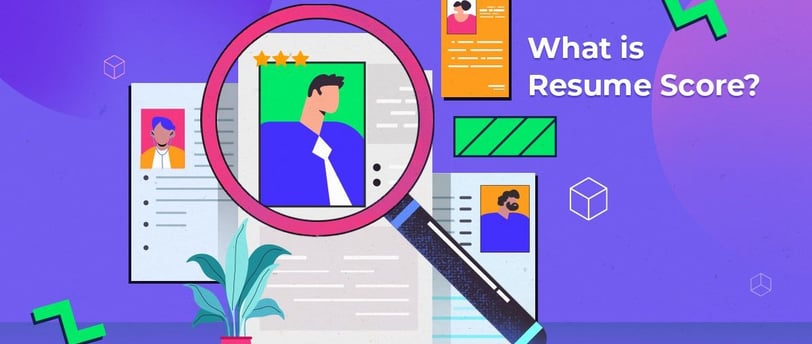The Importance of Resume Scoring in the AI Era
In the era of AI, tools like ScoreMyResume aid in swiftly analyzing resumes against job descriptions, optimizing recruitment. While complementing human judgment, these AI scorers ensure alignment between candidates' skills and employer needs, enhancing efficiency and fairness in hiring processes for today's dynamic job market.


In today's age of Artificial Intelligence (AI), automation, and machine learning, the traditional methods of assessing resumes are undergoing a significant transformation. With the emergence of AI-based tools like ScoreMyResume and ResumeScoreChecker, the question arises: do we really need AI-based resume scorers?
The answer lies in understanding the evolving landscape of recruitment and the role of technology in streamlining the process. Gone are the days when hiring managers sifted through stacks of resumes manually. Now, the application tracking system (ATS) has become ubiquitous in the recruitment process. These systems not only help in managing applications but also aid in identifying suitable candidates based on predefined criteria.
One might wonder why the need for additional resume scoring tools arises when ATS platforms already exist. The answer lies in the complexity of modern job markets. Job descriptions are becoming increasingly detailed and tailored to specific requirements. In such scenarios, manually assessing whether a resume aligns with the job description can be time-consuming and prone to biases.
AI-based resume scorers offer a solution to this challenge by leveraging algorithms to analyze resumes against job descriptions objectively. These tools can quickly identify key qualifications, skills, and experiences that match the requirements of the job. Moreover, they can provide an instant score or ranking, allowing recruiters to prioritize candidates efficiently.
However, it's essential to recognize that AI-based resume scoring tools are not meant to replace human judgment entirely. They serve as aids in the decision-making process, providing valuable insights and speeding up initial screenings. Human oversight is still crucial to ensure that candidates are evaluated holistically and fairly.
Another critical aspect to consider is the potential bias in AI algorithms. While AI holds immense promise in improving efficiency and accuracy, it's not immune to biases inherent in the data it's trained on. Therefore, it's essential to periodically review and refine these algorithms to mitigate any biases and ensure fairness in the hiring process.
Ultimately, the goal of resume scoring, whether AI-based or otherwise, is to enhance the efficiency and effectiveness of recruitment processes. By aligning resumes with job descriptions, recruiters can identify the most suitable candidates and ensure that deserving individuals do not miss out on opportunities due to mismatches or oversights.
In conclusion, the adoption of AI-based resume scoring tools reflects the evolving nature of recruitment in the digital age. While they offer valuable benefits in streamlining the screening process, it's essential to approach them with a critical mindset and supplement their insights with human judgment. By leveraging the strengths of both AI and human expertise, organizations can make informed hiring decisions that drive success in today's competitive job market.

